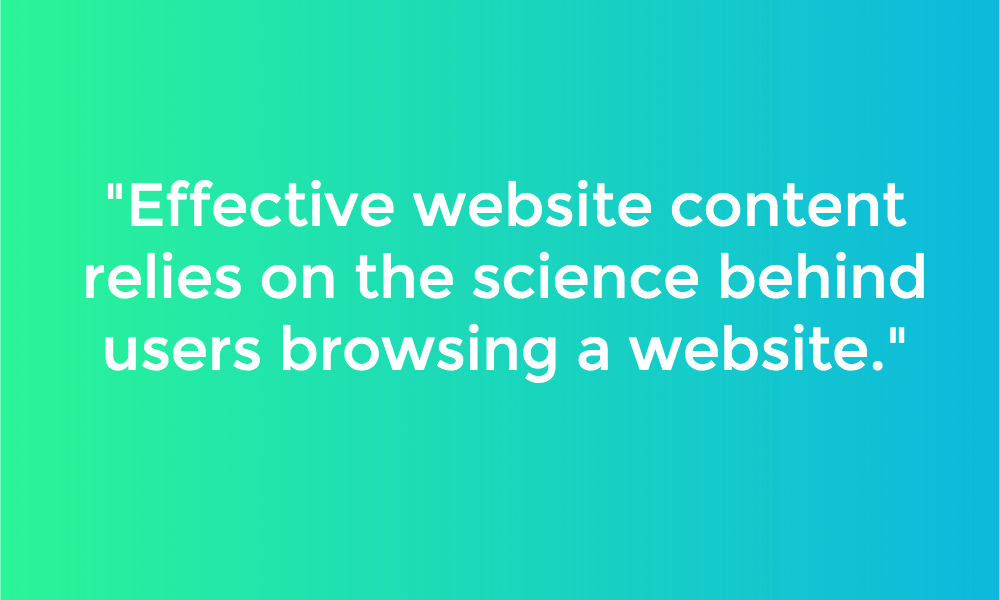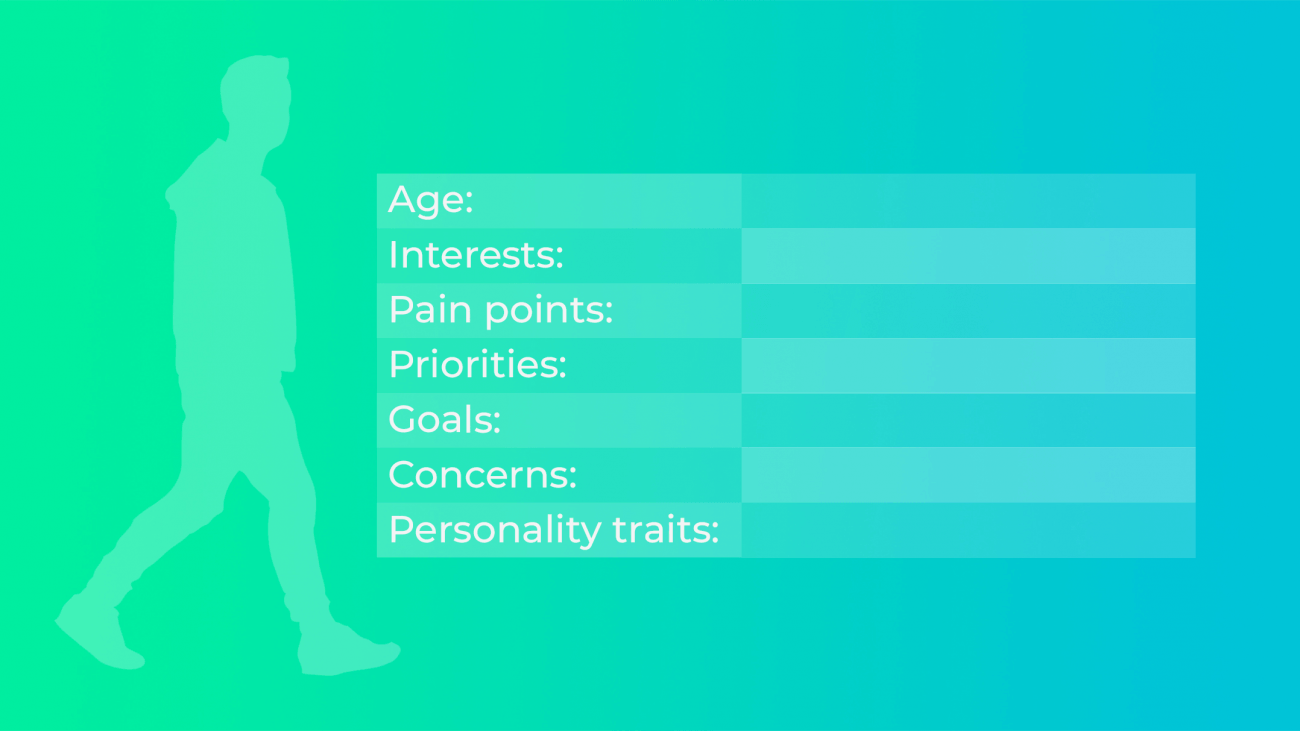After reading Alpa’s helpful tips on building a website, you might now be thinking about the other elements needed for your website. Content being one of them.
Many business owners make the mistake of jumping straight in and writing content quickly without a clear direction and objective. Their only purpose being to fill their website’s design with words. This approach leads to copy on your website that doesn’t speak to your users (potential customers) or interest them, resulting in users who land on your website to jump right off again.
I will guide you on what you need to consider when writing website content and provide you with guidance on what to look out for if you decide to work with a professional content writer. You can also read my full article on website content
here.
Something you must know about website content
‘Effective website content relies on the science behind users browsing a website’
Just because you have content on a website it doesn’t mean people will read it. To give your content the best chance of being consumed, you must understand and embrace the psychology of how users interact with online content.
How do users interact with content on a website?
Users don’t read all the words on a website, it’s not like reading a book. People visit a website for a reason, usually to find a solution to their needs. They skim read content to find what they’re looking for. If they’re hooked by a headline or sentence they skim read, they will stay and read on. This is why you must write content in a certain way - to ensure people take the time to read your words.
People will judge your website and make a decision about it in seconds. Sweor actually says that users take just 50 milliseconds to form an opinion on your website, and content has a big day on that opinion.
Read the full article on TJ Creative →
How to write website content in 5 steps
Step 1 - Identify who your website content will speak to
Before writing your website content, it’s a great opportunity to really dig deep into creating your ‘perfect’ customer. Once you’ve got that customer in mind you can write to appeal to them.
You can identify your consumers by their:
- Pain points - IMPORTANT - define how you'll stop their pain
- Priorities
- Goals
- Concerns
- Personality traits
Here are the types of questions you will have answers to by the time you have your ‘perfect’ customer:
- Who will you be speaking to?
- Why would they be on your website?
- What information/support/service do they need?
- How is your business/product/service their solution?
Extra tip: This is a great time to put together a brand messaging document book and customer persona, which will come in handy in keeping all your other marketing inline with your website messaging moving forward.
Step 2 - Plan your content
Once you know who you’re speaking to you can then plan out what you’re going to say to them, and how. It’s at this point you will want to think like your users and structure the information to best appeal to them.
A simple structure with any page on your website:
- Have an attention grabbing introduction to relate to the user.
- Move into discussing your user’s problem and outline their solution.
- Write-up a conclusion where you look to persuade them to take action on your website - to get in contact, buy a product, join as a member or sign up for your service, whatever your end goal is.
Step 3 - Start writing
Now that you have a structure for your website content, you can make a start on writing it up!
As some quick fire tips to writing website content, this is what I recommend:
- Use headings - this will help to structure your content.
- Ensure key information stands out - through headings and bolding.
- Write simple and short paragraphs - users will be reading fast. Try not to exceed more than 15 words a sentence.
- Use simple words - don’t overcomplicate your content. Ensure every user understands your words.
- Break up your text - this is called content chunking, it will help to improve the readability of your website’s content. It will allow people to scan read.
- Think mobile first - more and more people are using mobile to browse websites. Your sentences and paragraphs need to be kept to a minimum so that your site isn’t just bulks of content.
Your first draft won’t be perfect, so don’t be too hard on yourself if it’s not quite right to begin with. Take a break and come back to it.
Step 4 - Edit and proofread your content
Now that you’ve taken a break from your website content (from step 3), get your website content back in front of you and begin editing it with fresh eyes.
If you leave any spelling, grammar or punctuation errors in your copy it will negatively harm the integrity of your business, lowering the opinion your user has on your business.
Extra tip: In the editing and proofreading phase it would also be a good time to consider SEO (Search Engine Optimisation). Conduct keyword research into what your consumers are searching on Google that’s related to your business and work those keywords into your website content. This will help your potential customer to find you on Google.
Once you’re happy with your content, add it to your website!
Step 5 - Test and review
Once you have published your website with the new content, make sure to track how your website is performing.
There are a few tools you can use to judge how your website is performing with its content:
- Google Analytics - see how people are finding your website then how they browse it. Track conversions on your website too - is your content helping to convert your users? Or do you need to edit your content? Is there a page where users drop off your website most?
- Hotjar - see how users are moving around your website and interacting with it.
- Keyword rank tracker - if budget allows you could sign up to Ahrefs or SEMrush. Alternatively, go onto Google and search various keywords and see where you’re ranking.
You want to see your users staying on your website, navigating through your website and for your website to be ranking for relevant search terms on Google.
Do you need support with your website’s content?
Get in touch with TJ Creative to start creating content for your website and customers.
Thank you for reading!
Related Articles
LATEST BLOGS...

BRINGING THE COMMUNITY TOGETHER THROUGH THE STRENGTH AND POWER OF VOLUNTEERING
Community Interest Company (number 13424641)
Email us on
info@thisishaslemere.co.uk
© All Rights Reserved |
Privacy Policy
Keep up to date...
Newsletter Sign Up
Thank you for signing up to the newsletter.








